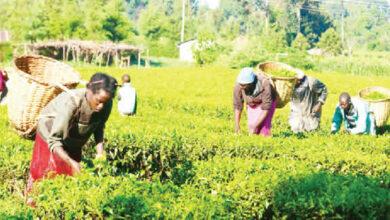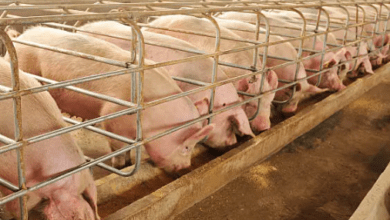Farming is a way of life, and farming has to do with the production of animals, and fishes, and crops, and forest resources man consumption and agro-allied industries.
Farming, although may be seen as being inherited, is said to be a dominant occupation in Nigeria, which has employed over 70 percent of Nigerians.
👉 Relocate to Canada Today!
Live, Study and Work in Canada. No Payment is Required! Hurry Now click here to Apply >> Immigrate to CanadaAlthough, most of the farming business in the country is practiced at the subsistence level, nevertheless, farming in the practical sense is the life-wire of the Nigerian economy.
Read Also: Catfish farming in Nigeria; 10 Tips To Make Money from It

Having said that, farming in this country has remained the dominant sector, especially in the rural community of Nigeria.
Benefits of Farming
Farming has offered numerous benefits, and below are some of them:
1. Healthy Local Economies
Farming business usually helps in keeping money in circulation within the communities, and local restaurants, and farmers markets, and retailers, as well as consumers, are all beneficiaries of farming.
Read Also: Poultry Farming In Nigeria; 10 Tips To Make Money from It
2. Environmental Solution
Through sustainable farming practice, environmental sustainability can be balanced with retention of valuables and the protection of farmland.
3. Local Food Security
Production of various food products will likely increase food security. It helps to secure farmland and also helps in building local food systems.
👉 Relocate to Canada Today!
Live, Study and Work in Canada. No Payment is Required! Hurry Now click here to Apply >> Immigrate to Canada4. Market Stability
Farmers will be benefitting from both market and price stability if the government gives support through farming programs, and farmers markets, including local distribution networks.
5. Social Capital and Community Amenities
Social capital will help to create community amenities beyond food production, and environmental/farming education, and recreational opportunities.
Prospects of Farming
Below are the prospects of farming in Nigeria;
1. Employment
Farming is an employment provider, and it provides over 60 percent of the workforce in the country. Farming business is labour intensive hence, it has helped in the reduction of the unemployment rate.
2. Provision of Food
Farming has provided food for human consumption and raw materials for industries, hence, discouraging dependence on importation.
Read Also: Mushroom Farming in Nigeria: How to Start, Succeed and Make Serious Sums of Money!
3. Rural-urban Migration
Farming has curbed the effect of rural-urban migration hence, decongested urban areas as well as, make life easier for all.
4. Improved Economy
Through farming, the government has taken upon itself to develop degrading infrastructure with a view to ease the movement of goods from one location to another location.
5. Industrialization
Increased productivity in the farming business has led to surplus labour hence, capital is created and also diverted to investment in the industrial sector to boost economic growth.
6. Contribution To National Income
Farming has helped in fostering economic growth, as well as contributing to the national income.
7. Improved Infrastructure
Through farming business, roads, and market yards, and storage, and transportation, and railways, and postal services among others have been improved as a result of demand for movement of industrial goods and the improvement of the commercial sector.
Read Also: How To Start Yam Farming In Nigeria
Problems of Farming
Below are some problems of farming in Nigeria:
1. Poor Growth
Although Nigeria is blessed with rich farmland, however, farming business is experiencing a low growth rate. About 50 percent of cultivable farmland in the country is not cultivated.
2. Constraints For Small-Hold Farmers
There are so many problems constraining smallholder farmers in the country, and these are; poor access to modern inputs/credit, and poor infrastructure, and inadequate access to markets, and land/environmental degradation, including inadequate research as well as, extension services.
3. Peasant Nature Of Production System
The peasant production nature on the part of farmers has actually led to considerable low productivity, as well as poor returns on investment ROI.
4. Marketing Problems
Marketing is the act of getting farm produce from the farmers to the consumers hence, enlarging production and also stimulating consumption, and expansion of the agro-industry and facilitation of industrial growth.
But the deplorable condition of rural communities; roads, where farms are located has made efficient transportation of farm produce from where the product is made to where they can be consumed.
5. Storage And Processing
Lack of safe and efficient storage system for farmers to make sure that there is a continuous supply of farm produce in the market has been a major problem.
Storage and processing facilities are so vital for making available farm produce for consumption anytime they are needed, because harvested farm produce usually perished, as a result,6. non-storage facilities.
6. Infrastructural Inadequacies
Inadequacy infrastructure like physical infrastructure, which includes, road facilities, railway system, educational facilities, health, and social services, for example, potable water, electricity, communication system are some of the problems.
Read Also: Steps To Start Okra Farming Business In Nigeria
Conclusion
Farming, although may be seen as being inherited, is said to be a dominant occupation in Nigeria, which has employed over 70 percent of Nigerians.






